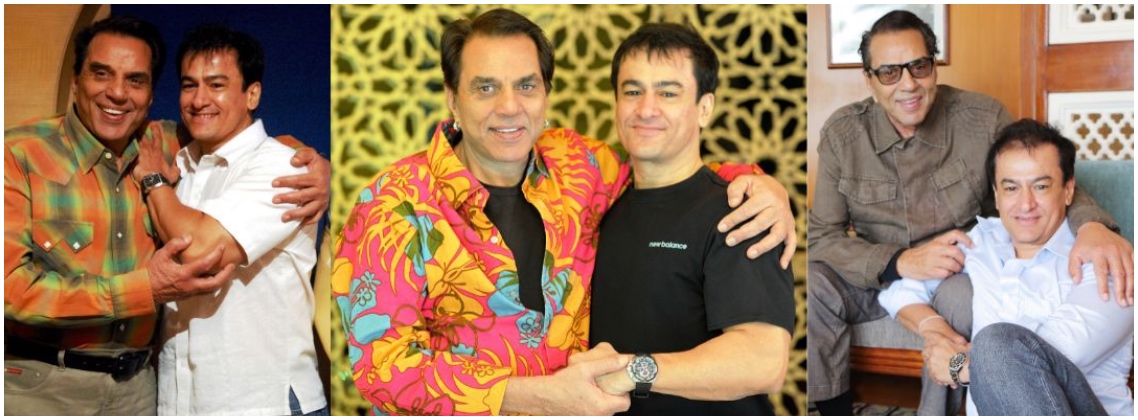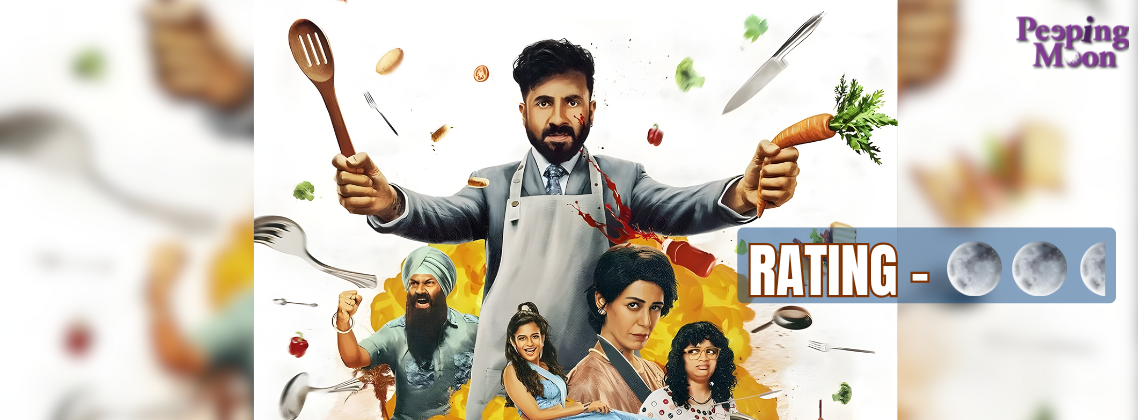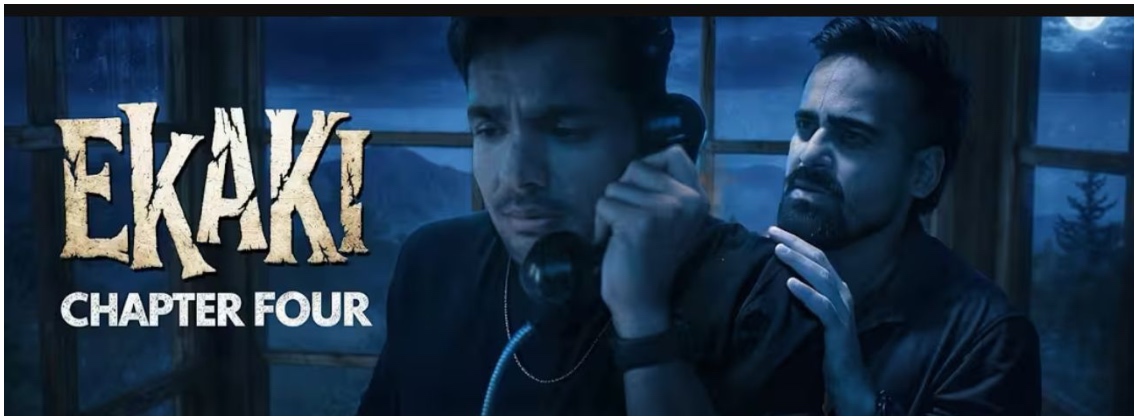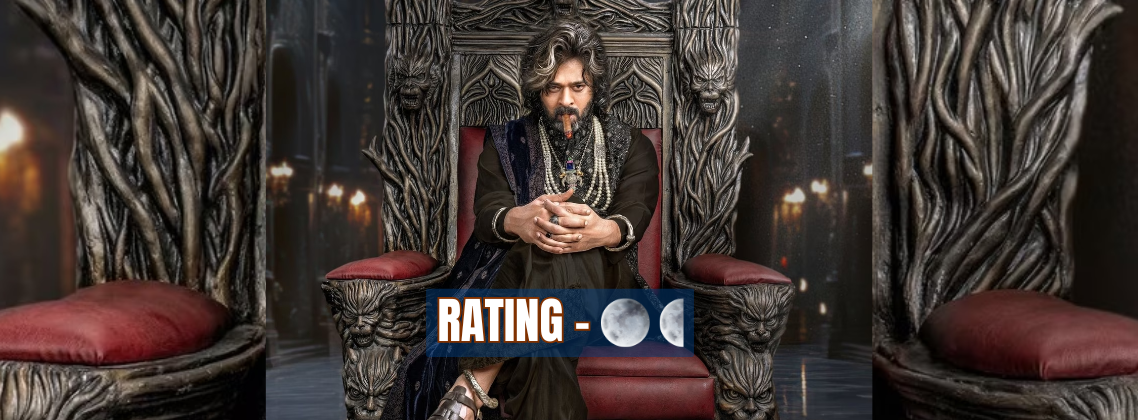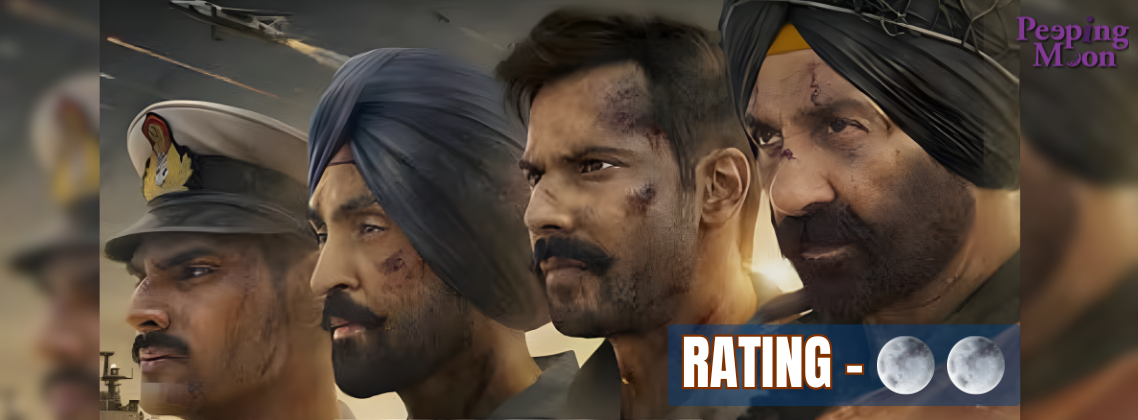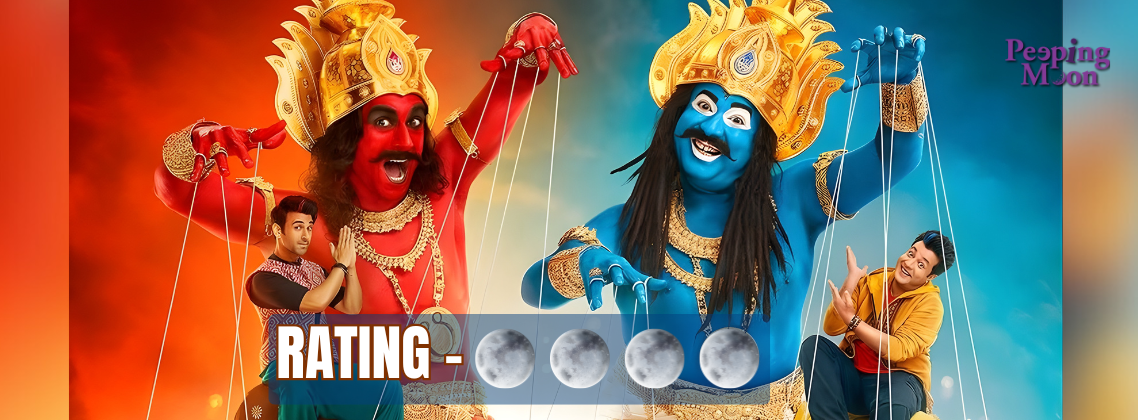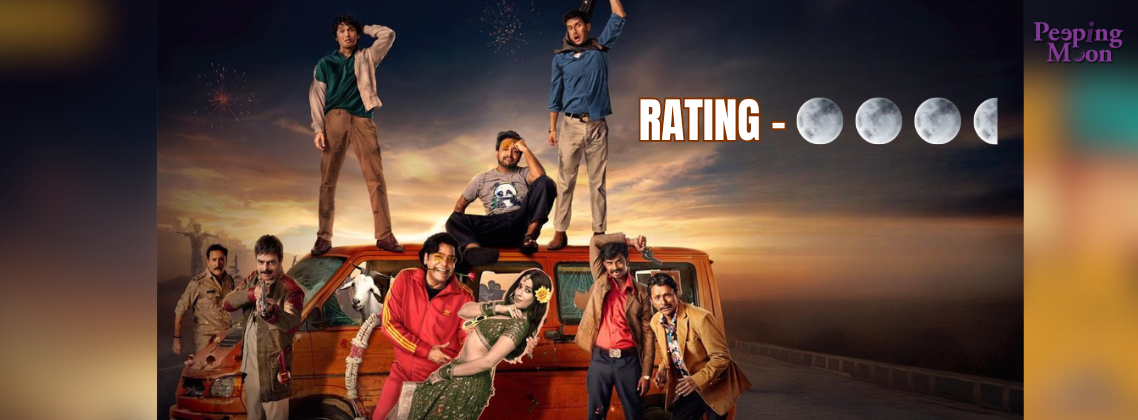Vasan Bala needs no introduction. His love for Indian cinema is reflected beautifully in every project and that's what makes him unique and credible. In the month of January, the renowned filmmaker brought back directors like J Neelam, Dilip Gulati, Vinod Talwar and Kishan Shah and allowed them to make films of their choice and style. All of this was documented in Amazon Prime Video's docu-series titled Cinema Marte Dum Tak.
While the docu-series was a hilarious riot, it also brought alive raw emotions that were hidden for years in the hearts of those 4 filmmakers who were known for their 'B-Grade' films once. As Cinema Marte Dum Tak continues receiving acclaim from the audience, PeepingMoon.com spoke to Vasan, the creator of the series. Talking about the show, he opened up about the casting process. In addition to this, Vasan talked about Indian cinema, filmmaking and pulp fiction.
Excerpts from the interview:
.jpg)
Cinema Marte Dum Tak title in itself indicates that you eat, breathe, and live cinema. Do you believe the culture of cinema and craze is fading over the years?
The craze never dies and it does come back every time. My mother would say that Rajesh Khanna’s phase was the greatest phase but the current generation would never understand that. When we were kids, it was Amitabh Bachchan’s era and then came Shah Rukh Khan. There might not be superstars as such but filmmaking is embedded in our culture and it will be there forever. There will be films to surprise us and put us in awe and that will keep happening.
What prompted you to choose filmmaking?
I loved watching films. Apart from that, I wasn’t able to choose any other career. Even if I got other jobs, I couldn’t do it. It was like a gamble; the last resort. I am thankful to my parents for letting me explore without being judgemental.
What was the process of locking filmmakers like J Neelam, Dilip Gulati, Vinod Talwar and Kishan Shah? Why didn’t other names crop up?
There were many names being discussed but over a period of time, as the producers started discussing with the filmmakers, a lot of them didn’t want to come in front of the camera. Amid that, we found these four people who were unique in their approaches, honest, and willing to make films even now.
.jpg)
Why didn’t Kanti Shah star in the lead when he was a bigger filmmaker than Kishan Shah?
Kanti Shah wanted to have a solo show which wasn’t possible. That wasn’t the idea. But maybe in the next season; you never know. In Cinema Marte Dum Tak, we were happy to find a more colourful and varied representation of the era instead of just one person.
Do you wish to make a film that captures the essence of the Ramsay Brothers?
Yes, that’s a goal I wish to fulfill. I do want to make a horror film. Maybe, I'll try something on vampires.
Why did you choose to explore yesteryear filmmakers over the current generation and even those in the 2000s?
While we have all loved watching Rajiv Rai films like Gupt and Vishwatma, those filmmakers are still in mainstream cinema as people recognise them. These films are present in pop culture but J Neelam, Dilip Gulati, Vinod Talwar and Kishan Shah were forcefully forgotten. They were in the peripheral but we forcefully blurred them out. It was an attempt to make them feel acknowledged.
People are now inspired by your style of filmmaking. Who has been your inspiration and why?
There were many inspirations but watching Mani Ratnam films was a huge deal. I consider filmmakers like Anurag Kashyap, Bharathiraja, Vetrimaran and many others to be my inspiration.

Your films are an ode to the good old Hindi films. Do you believe that era can ever be revived?
Nothing can be recreated by design but if it has to go within its own cycle, it will. You cannot redesign it to be like that. Those circumstances were different, the socio-political and socio-economical structures were and these factors lead people to have a different kind of culture. The time is different and things will keep happening in different ways but it cannot be the same.
Why did you choose to revisit the world of ‘B-Grade’ films. Are you of the opinion that people should now stop classifying films as A-Grade, B-Grade, C-Grade, etc?
Yeh toh humari fitrat hai, hume raat ko neend nahi aati jabke we don’t put people in boxes. Society is like this but it would be nicer if the categorisation doesn’t happen and prejudices don’t come into place.
What’s your take on the current quality of Pulp Cinema?
What was pulp fiction many years ago is blockbuster cinema now. Star Wars was a B-Movie in Hollywood which then became A and now it has become the template of success for Hollywood cinema. Maybe Shakespeare at his time was pulp and today it is literature. So this keeps changing.
Monica, O My Darling was a major success of 2022. Do you wish to take it forward as a franchise?
We still don’t know. That will be discussed when we meet Netflix next.
Of late, the West has been appreciative of Indian cinema. Be it documentaries or major feature films, India is on a global pedestal once again. Do you wish to exhibit your projects globally?
If it goes organically then why not. The idea is to make a film and tell a story. The producer has to decide the rest. It is good to know that people are aware of diversity. Even if you see shows made in the West, they will have faces from different ethnicities. People are open to accepting new cultures. If I am a part of it then why not.



